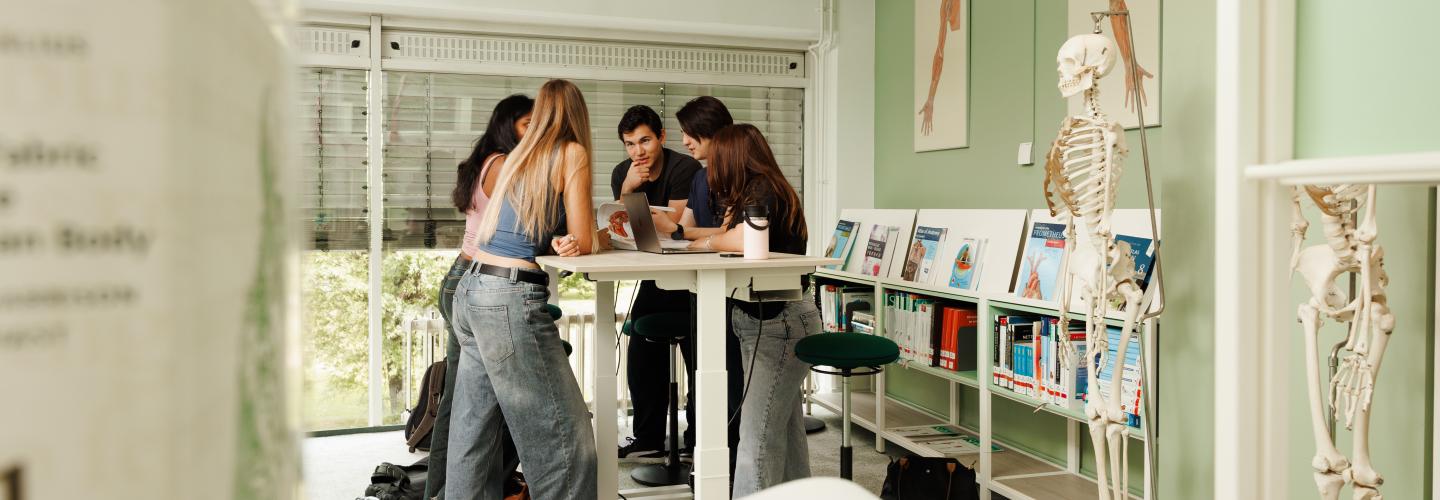Why this programme
Take note
This master's programme is taught in Dutch.
Portfolio
The portfolio is central to this research master's programme. It is an individual portfolio in which you collect all feedback and information on the development of your competences. You can also use the portfolio to steer your progress and development within the programme. You do this through self-analysis and self-reflection. The counsellor supervising you uses the portfolio to guide you in the best possible way. At the end of each study phase, the portfolio is used to test how far you have progressed in your development and what level you have reached. Working with a portfolio is an excellent preparation for the future, as a portfolio is standard in post-Master's medical specialisation programmes.
Throughout the programme, you have your own counsellor who guides you in self-directing your learning process and monitors the quality of the educational pathway. This way, you can develop yourself to the maximum and lay the foundations for a career as a physician-clinical researcher.
Knowledge, skills and professional behaviour
In this programme, you will not only develop knowledge and skills in the field, but also build your professional attitude. You develop your capacity for self-directed learning, communication and cooperation. You collect feedback and information on this wide range of competences in the portfolio.
During the master's programme, you will work on the following competences:
- Medical (knowledge and) action
- Communication
- Organisation
- Professionalism
- Social action
- Collaboration
- Science (clinical researcher)
The elements of knowledge, skills, professional conduct and scientific training are addressed in each phase of the programme. Furthermore, during your training as an elementary doctor, you have more and more contact with patients. Your own responsibility in these contacts gradually increases. Training as a clinical researcher starts with basic scientific training. Eventually, you will conduct your own clinical research, carry out scientific problem analyses and write a scientific report. At the end of this study, you can already start your PhD track.
Spend time abroad
The research master's Physician-Clinical Researcher is largely taught in Dutch. Clinical researcher education is mainly in English. You can go abroad during the programme, for example for a short internship in the second year. You can also do scientific research abroad during the combined internship in year four.
Small groups = big advantages
As with many Maastricht University programmes, the Faculty of Health, Medicine and Life Sciences programmes are taught using Problem-Based Learning (PBL). In small tutorial groups of 10 to 12 students, you seek solutions to ‘problems’ taken from real-world situations. Instructors act as facilitators, giving help as it’s needed. This allows you to build independence and develop problem-solving skills that you’ll need in the field. This active, dynamic and collaborative learning method has one of the highest knowledge retention rates of any instructional method.
PREMIUM honours programme
PREMIUM is our Honours programme for high-performing master’s students. If selected, you will work in an interdisciplinary team on a project for a real client from the public or private sector (e.g. Cisco, DHL, EcoAct). Along with guidance from a project mentor, you will receive individual coaching focused on your personal and professional development. You will also attend several workshops and events designed to cultivate valuable knowledge and skills, as well as build a network that provides you with the best preparation possible for the job market.
